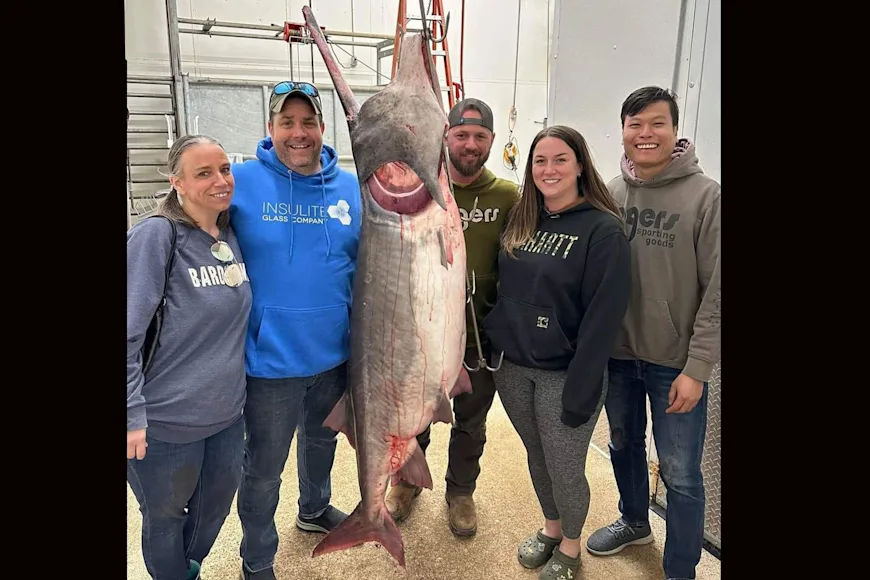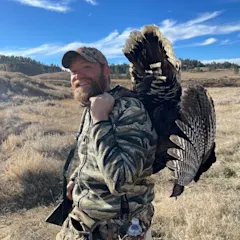Missouri’s paddlefish season just opened a few days ago, and an angler from Kansas has already broken the state and world record for the unique species. Chad Williams of Olathe, Kansas snagged the 164-pound, 13-ounce spoonbill on Saturday, March 17, according to a press release
issued earlier today by the Missouri Department of Conservation (MDC).
_Learn how to subscribe to the new Field & Stream magazine here!
_
“I was lucky enough to get invited to go out snagging with friends,” Williams told the MDC. “I’d never been snagging before. Never seen a paddlefish – didn’t even know what it was!”
Williams was on a boat with friends when he hooked into the pre-historic lunker. After an exhausting fight, he took the fish to a local meat market where it was weighed on a certified scale. “I was thinking I was extremely weak because it was taking so long to reel in,” he said. “My body was aching.”
When Williams and crew met with MDC Fisheries and Protection staff at Three Brothers Meat Company in Montreal, Missouri, the biologists were blown away by his catch. “Conservation Agent Tyler Brown was in disbelief,” Williams recalled. “He said, ‘You don’t have to go out fishing ever again! Nothing can top this!’ and he’s probably right!”
According to MDC, Williams’ catch is the second state-record fish of 2024. The first record of the year was 12-ounce yellow perch caught by Jeffrey Needles of Jackson County, Missouri. Williams’ paddlefish is the biggest ever caught in the Show-Me State by long shot. The previous state record, also taken from Lake of the Ozarks, weighed 140 pounds, 10 ounces. It was caught in 2022 by Jim Dain of Pittsfield, Illinois.
Read Next: Montana Bowfisherman Arrows World Record Paddlefish
Early ancestors of today’s American paddlefish inhabited earth around the time of the dinosaurs and the species has changed very little since then. Like sharks, they’re covered in cartilaginous skin. A large paddle-shaped rostrum makes up about 1/3 of the fish’s total body length. The paddlefish’s preference for plankton makes it hard to catch with traditional tackle, so anglers locate them with fish finders and snag the behemoths with large treble hooks as they filter feed near the bottom.
William’s catch edged out the previous world record—caught in Oklahoma’s Keystone Lake in 2021—by just 13 ounces. He told the MDC that he kept some of the meat to eat and shared the rest with his fellow anglers. He plans to have the fish’s head mounted and hung on a wall.






